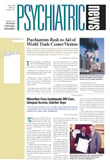Acetylcholinesterase inhibitors (AchEIs) are commonly prescribed to patients with mild to moderate Alzheimer’s disease, with most clinicians believing they are helpful in the vast majority of cases. However, it has been common practice that as the disease progresses, the medication is discontinued, under the assumption that the disease process has advanced beyond the ability of the medications to provide any further benefit. New evidence now indicates that these drugs may indeed be of benefit, well into the advanced stages of the disease.
In the new report, which appeared in the August 28 issue of Neurology, Howard Feldman, M.D., director of the University of British Columbia Hospital’s Clinic for Alzheimer’s Disease and Related Disorders, investigated with his colleagues in the Moderate to Severe Alzheimer’s Disease Study Group (MSAD) the efficacy and safety of continuing donepezil (Aricept) in patients with moderate to severe symptoms. The research was funded by Pfizer Pharmaceuticals, which markets Aricept along with Eisai Co., Ltd.
“We already know that treatment with [donepezil] for people with mild to moderate Alzheimer’s disease slows progression of symptoms such as [a decline in] cognition and loss of function and may be associated with a delay in nursing home placement, allowing loved ones to stay at home longer,” Feldman said in a press release announcing publication of the report. “These findings further reinforce the significance of [donepezil] as an important choice to preserve patients’ independence longer while they live with the disease.”
Approved for the treatment of mild to moderate Alzheimer’s disease, donepezil is the leading AchEI in the global market. No medications are yet approved for the treatment of moderate to severe Alzheimer’s disease.
Feldman’s group looked at nearly 300 patients who were diagnosed with mild to moderate Alzheimer’s and were randomized to a 24-week, double-blind trial of either donepezil or placebo. Those receiving the drug started with 5 mg a day for the first 28 days, at which point the medication could be increased to 10 mg a day per the clinicians’ judgment.
Only patients in assisted-living and community-based residential programs were enrolled in the study. No patients requiring full-time nursing care were included. All patients were rated at baseline and scored an average of 11.7 using the standardized Mini-Mental State Examination (sMMSE). All patients in the study had a Functional Assessment Staging score of less than or equal to 6 at the start of the study.
Patients who received donepezil not only remained stable, but also showed statistically significant benefits on the Clinician’s Interview-Based Impression of Change with Caregiver Input (p < 0.001). Sixty-three percent were rated as improved or having no change on the CIBIC+, compared with 42 percent of the placebo group at week 24.
In addition, the group taking the drug showed less decline on average compared with placebo-treated patients on both instrumental and basic activities of daily living. The group receiving donepezil also showed statistically significant overall improvement versus the placebo group in behavioral problems, especially apathy, depression, and anxiety.
At week 24 the donepezil group scored an average of 1.79 points higher on the sMMSE than did the placebo group (p < 0.0001). Total scores on the Neuropsychiatric Inventory improved 4.6 points for the donepezil group versus a decline of 1 point for the placebo group. This resulted in a difference of 5.6 points in favor of the group that received treatment (p = 0.0005).
Eighty-four percent of the donepezil subjects and 86 percent of the placebo subjects completed the trial. Adverse events were experienced by 83 percent of the donepezil subjects and 80 percent of placebo subjects; 8 percent of donepezil patients and 6 percent of placebo patients dropped out of the study due to those adverse events. The most commonly reported side effects for donepezil reported during the study included diarrhea (12.5 percent for donepezil and 4.8 percent for placebo), headache (11.8 percent versus 4.1 percent), arthralgia (6.9 percent versus 1.4 percent), and vomiting (6.9 percent versus 2.7 percent).
According to Feldman, he and his colleagues are continuing to look at using donepezil in patients in the more advanced stages of Alzheimer’s and comparing the drug with other members of its class. They are also looking at larger sample sizes and adding more sensitive measures, such as the ADAS-cog.
An abstract of “A 24-Week, Randomized, Double-Blind Study of Donepezil in Moderate to Severe Alzheimer’s Disease” is posted on the Web at www.neurology.org/cgi/content/abstract/57/4/613. ▪
